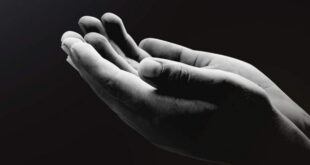I nearly missed fajr (morning prayer) the other day. My alarm rang, and I looked at the time, thinking “the time for fajr prayer has just started, so I can snooze for just a few more minutes.” As we all know, ‘a few more minutes’ always turns into manymore minutes and when I opened my eyes the second time, there were only 10 minutes left until sunrise. After a very rushed prayer, I remembered this beautiful ayah (verse):
“Then we caused to inherit the Book those We have chosen of Our servants; and among them is he who wrongs himself, and among them is he who is moderate, and among them is he who is foremost in good deeds by permission of Allah. That [inheritance] is what is the great bounty.” (Quran, 35:32)
Allah (subhanahu wa ta`ala – exalted is He) tells us about 3 categories of people in this verse:
- The dhalimun linafsih: He who wrongs his own soul.
- The muqtasid: A person who’s balanced. He performs the obligations and avoids the prohibitions, but he may not do the recommended deeds or avoid the disliked deeds.
- The sabiqun bilkhayraat: He who is speedy, or first, in doing good deeds. He not only performs the obligatory and avoids the prohibitions, but he also performs the recommended and avoids the disliked.
We should all want to be in the third category. But the reality is a little different. The difference between these groups of people can be seen in prayers. Some combine prayers without an acceptable reason or skip them altogether – that person has wronged himself. Another person, the average Muslim insha’Allah (God Willing), will pray within the prescribed time, which is perfectly acceptable and is good. But the third category – wow – is the person who loves salah (prayer) so much, he arrives early and waits in anticipation to pray. He is from the sabiqoon. So you can apply this 3 level category from the Quran (35:32) to everything. Whether it is good character, giving charity and anything that is deemed good by Shari`ah(Islamic jurisprudence), the third category is the person who is at the front of the line in his speediness to do good deeds.
Imagine for instance, being given an opportunity to give charity. A person of the sabiqoon would not hesitate. A muqtasid may say, “insha’Allah, I’ll do it later.” He may still do it. Or he may forget. And a person who has lost an opportunity by “wronging himself” would not even bother to give.
In our relationship with Allah, we should always want to be of those who are sabiqoon; those foremost in good deeds. What differentiates us as Muslims? Not the way we look, not our academic achievements, nor our wealth, but our taqwa – the awareness of God and fulfilling what He commands in action. That is where our true worth lies.
The last ten nights of Ramadan is the perfect opportunity for us to try to be of the sabiqoon. Ask yourself: how can I be thefirst during these final days? And in what? How can I be among the top ranks of Muslims? How can I be of those who are most loved by Allah?
When we are tempted to get a few minutes of shut-eye thinking “there is still time for fajr,” let us motivate ourselves to be of the sabiqoon. When we get tempted to delay giving charity, let us remember that we want to be on the front lines of those who are close to Allah. When our parents ask us to do something, let us not simply do it, but do it with a smile. We can aspire higher when we go to pray taraweeh at the mosque during Ramadan. Even in our sleep we can gain the qualities of the sabiqoon: if we know we need a certain number of hours of sleep to be alert for fajr, then we should aim to get that amount.
And subhan’Allah, nothing we do for Allah is ever wasted. For our effort, Allah will tell us in Paradise,
“This is for you a reward, and your effort has been appreciated.” (Quran, 76:22)
Insha’Allah! May we all be of the sabiqoon this Ramadan. Ameen.
Source : Email from friend
 navedz.com a muslim's Quest for the truth
navedz.com a muslim's Quest for the truth










Jazaakallahumma khairan for your heart touching,caring advice. May allah(s.w.t) grant you jannaathul firdous, Insha Allah. Assalamu alaikum wa rahmathullahi wa barakathuhu